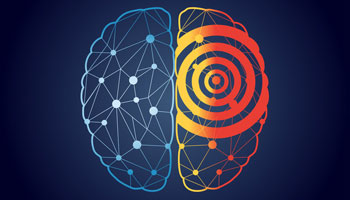Frequently Asked Questions
1. When would I need a neuropsychological assessment?

If you are experiencing or have experienced any of the following, you may benefit from a neuropsychological assessment:
- difficulties with your memory
- poor attention or concentration/ easily distracted
- difficulties with your language and learning functions such as reading or doing math
- difficulties with body coordination or finger dexterity
- difficulty planning and organising your daily life
- poor problem-solving ability
- changes in your emotional functioning or ability to cope
- a concussion or other head injury
- stroke
- dementia
- confusion
- changes in your cognitive abilities after surgery
- a systemic disease or condition, that is, a diagnosis involving your whole body (e.g. lupus)
- side effects from medication, including chemotherapy
2. What will an assessment do for me?
It will help you and your doctor gain a better understanding about what is going on with you and why you are experiencing difficulties (determine a diagnosis).
It will help you and your doctor and/or other health care providers plan the best possible treatment and care for you (medication and care plan).
It will help you and your doctor and/or other health care providers determine whether you are improving by comparing your assessment with an established baseline (success).
For more information on specific types of assessment, please refer to the Assessment tab.
3. Who pays for an assessment?
Innergy Comprehensive Limited is the private practice of Dr. D'Arcy Helmer & Associates, and is therefore not covered by Medicare.
Fee for service applies, and the client/recipient of services is responsible for payment.
Payment is due according to the following fee schedule (please note that we accept payment by cash, cheque, e-transfer, debit or credit card. For debit and credit card, we charge a processing fee.):
Fee Schedule & Cancellation Policy4. How much time will an assessment take?
The range of a typical neuropsychological assessment is 5 to 7 1/2 direct hours for the client, plus indirect time for scoring test results, analysis of the data, review of medical documents, and preparing a written report.
5. How long does neurotherapy take?

The initial consultation includes a clinical interview and the administration of a QEEG, which typically totals about 2 hours for the client. Indirect time to analyse the QEEG, review documents and history, and determine treatment protocol is typically an additional 2 or more hours.
Neurotherapy sessions are typically 50 minutes each. Frequency and duration are dependent upon the intensity of treatment metrics, which is typically based on the severity of the individual's condition.
Results are typically noted within 8 sessions, at which time the QEEG is repeated in order to determine what transitions or changes have occurred in the brain. Individuals will be asked at each session what changes they have noticed in their function.